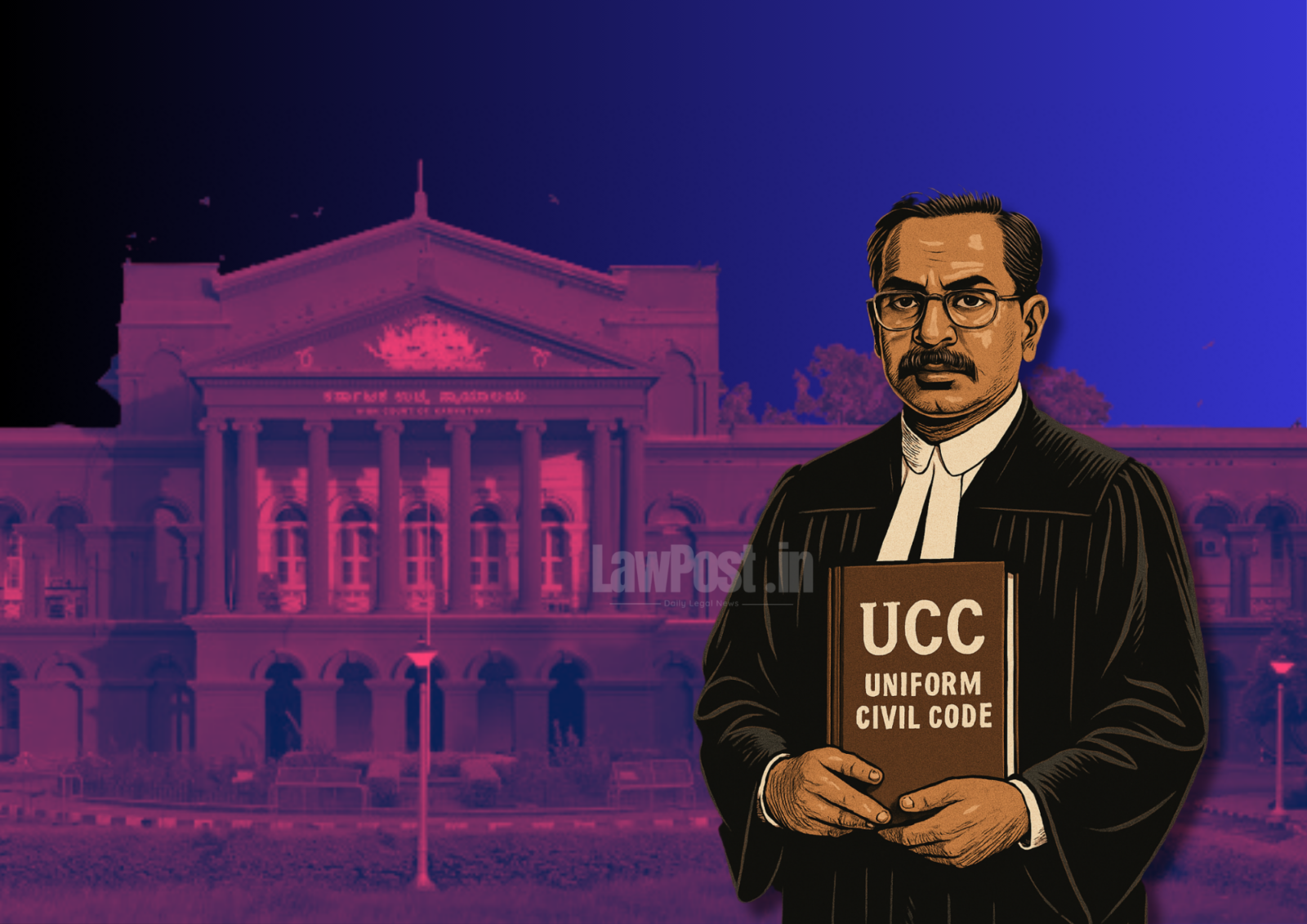Calls UCC essential for justice to women and fulfilment of Preamble ideals
In a significant observation, the Karnataka High Court has called upon the Parliament and State Legislatures to make every endeavour towards enacting a Uniform Civil Code (UCC), asserting that such legislation is essential to ensure justice for women, promote equality across religions and castes, and uphold individual dignity.
The strong recommendation came from Justice Hanchate Sanjeevkumar while deciding a property dispute involving the legal heirs of one Abdul Basheer Khan. The Court used the occasion to highlight the disparities in personal laws and stressed the urgent need for uniformity.
“The Court is of the opinion that bringing a law on Uniform Civil Code and its enforcement certainly give justice to women, achieve equality of status and opportunity for all and accelerate the dream of equality among all women in India irrespective of caste and religion and also assure dignity individually through fraternity,” the judgment read.
The Court emphasized that while the Constitution guarantees equal status to all women as citizens, religious personal laws continue to create legal distinctions. Justice Sanjeevkumar noted the progress under Hindu law, where a daughter enjoys equal rights as a son and a wife holds equal status to her husband. In contrast, he pointed out, Mahomedan law does not offer the same level of parity.
“A ‘Daughter’ under Hindu Law is having equal status/right/entitlement and interest as that of Son and in case of wife she is having equal status as that of husband… but it is not so under the Mahomedan Law,” the Court observed. “Therefore, the Court is of the opinion that our Country needs Uniform Civil Code in respect of their Personal Laws and Religion, only then the object of Article 14 of the Constitution of India will be achieved.”
The judgment further stated that enactment of a UCC would help achieve the true objectives of the Preamble of the Constitution, especially those relating to equality and fraternity.
The observations were made during the adjudication of a civil appeal filed by the children of Abdul Basheer Khan, who died intestate, leaving behind a mix of ancestral and self-acquired properties. A legal dispute arose after one of his daughters, Shahnaz Begum, was allegedly denied her rightful share.
The trial court had ruled in 2019 that Shahnaz Begum’s legal representative was entitled to a 1/5th share in three joint family properties. However, dissatisfied with this outcome, some of the siblings appealed to the High Court, while the respondent filed a cross-objection seeking inclusion of more properties in the partition.
After examining the evidence, the High Court upheld the trial court’s verdict, affirming that the three properties were indeed part of the joint family estate. It also rejected the cross-objection, finding no sufficient proof that the additional properties claimed were of joint family nature.
The case, though rooted in property rights, gave rise to a much larger constitutional conversation. The Karnataka High Court’s plea adds to the growing judicial and public discourse around the implementation of a Uniform Civil Code—long considered a sensitive and complex issue in Indian legislative history.
Case: Sri Samiulla Khan Others vs Sri Sirajuddin Macci Others – Available on LAWFYI.IO








